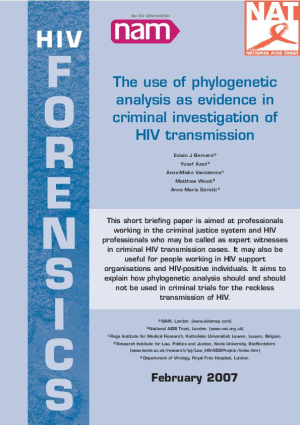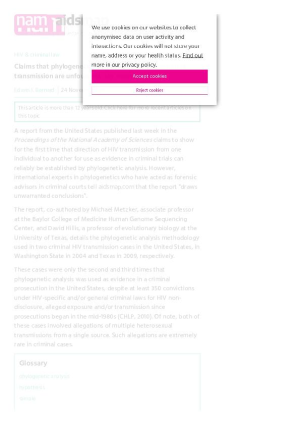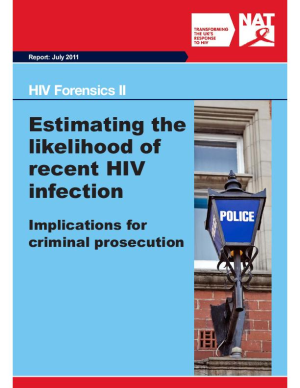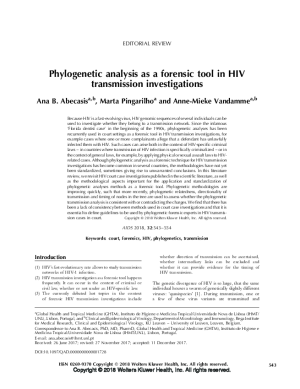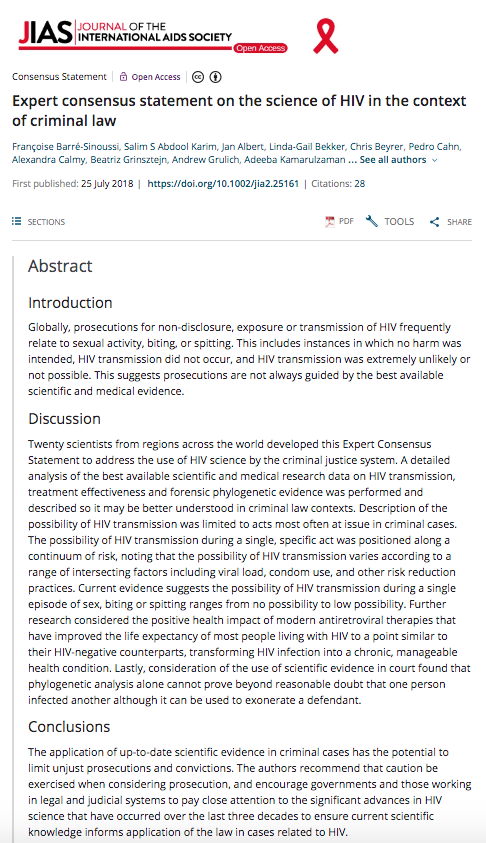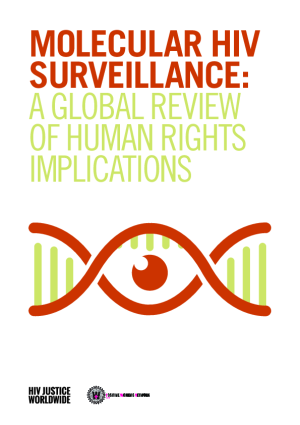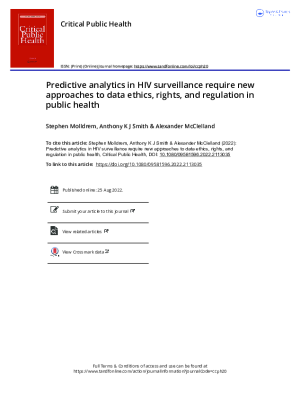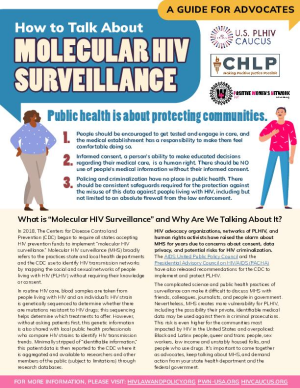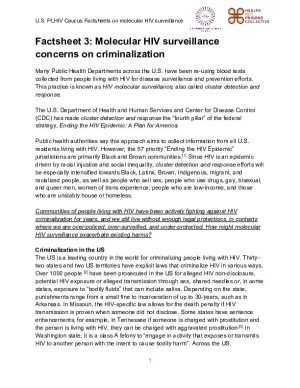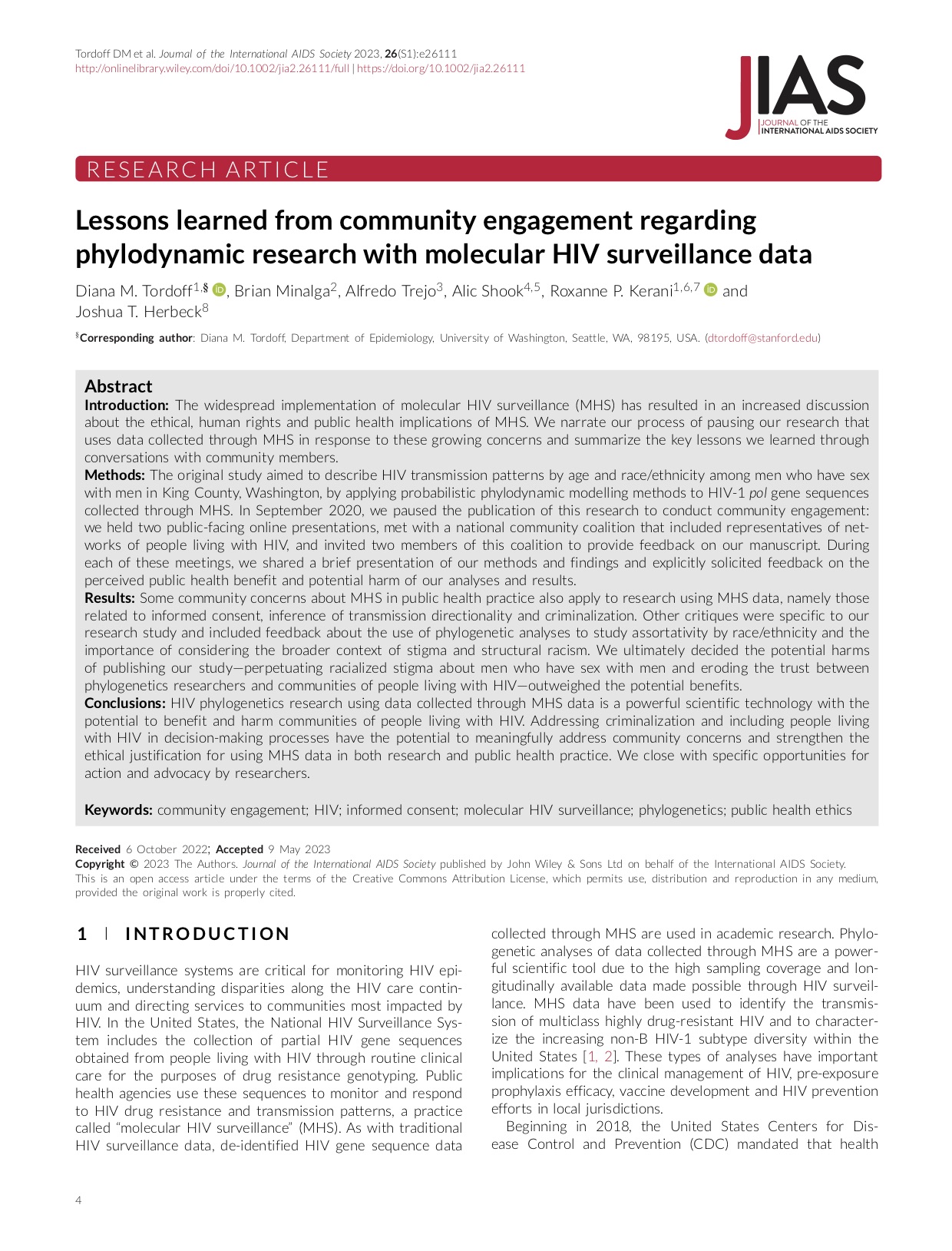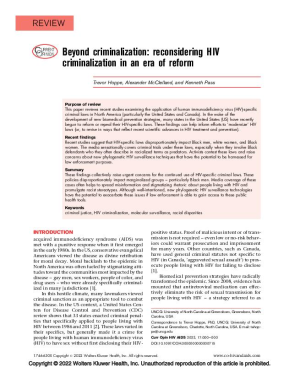Aimed at professionals working in the criminal justice system and those who may be called as expert witnesses in criminal trials, the briefing explains how phylogenetic analysis should and should not be used in criminal trials for the reckless transmission of HIV.
Supporting fair & robust trials
Understanding correct use of scientific tests
Includes resources explaining the limits of current scientific analysis to determine the likelihood that two person’s HIV is linked, and research summaries on HIV transmission risk.
HIV forensics: pitfalls and acceptable standards in the use of phylogenetic analysis as evidence in criminal investigations of HIV transmission
Considers the usefulness of phylogenetic analysis in HIV criminal trials, finding that phylogenetic analysis cannot prove that HIV transmission occurred directly between two individuals. Explains that phylogenetic analysis can exonerate individuals by demonstrating that the defendant carried a virus strain unrelated to that of the complainant.
- Alternative links
- Français, Español, Русский, HIV Medicine Wiley Online Library
Claims that phylogenetic analysis can prove direction of transmission are unfounded, say experts
Questions the merits of a phylogentics article published in Proceedings of the National Academy of Sciences, and warns against relying on its conclusions.
HIV Forensics II – Estimating the likelihood of recent HIV infection — implications for criminal prosecution
Considers the validity and meaning of scientific tests (Recent Infection Testing Algorithm) to estimate the likelihood of a recent infection in persons diagnosed as HIV positive in the context of prosecutions for HIV transmission.
Phylogenetic analysis as a forensic tool in HIV transmission investigations
A review of HIV court case investigations published in the scientific literature, as well as the methodological aspects important for the application and standardisation of phylogenetic analyses methods as a forensic tool. Concludes that there has been a lack of consistency between methods and that it is essential to define guidelines to be used by phylogenetic forensic experts in HIV transmission cases.
Expert consensus statement on the science of HIV in the context of criminal law
Twenty scientists from regions across the world developed this Expert Consensus Statement to address the use of HIV science by the criminal justice system. Description of the possibility of HIV transmission was limited to acts most often at issue in criminal cases. The authors recommend that caution be exercised when considering prosecution, and encourage governments and those working in legal and judicial systems to pay close attention to the significant advances in HIV science that have occurred over the last three decades to ensure current scientific knowledge informs application of the law in cases related to HIV.
- Alternative links
- Czech: Expertní prohlášení k vědeckým poznatkům o HIV v kontextu trestního práva , French: Déclaration de consensus d'experts sur la connaissance scientifique relative au VIH dans le contexte du droit pénal, German: Expertenkonsens zur HIV-Wissenschaft im Kontext des Strafrechts, Mandarin: 專家共識聲明:刑法脈絡下的愛滋相關科學, Russian: Заявление об экспертном консенсусе в отношении научных данных о ВИЧ- инфекции в контексте уголовного права , Spanish: Declaración de Consenso de expertos sobre la ciencia relativa al VIH en el contexto del derecho penal
Molecular HIV Surveillance: A global review of human rights implications
Provides a detailed explanation of what MHS is and how it is used across the globe, including how the technology works, where it is being conducted, and by whom. The paper describes growing human rights concerns relating to the use of this technology and goes on to list a number of recommendations for the use of MHS which were gathered from an international literature review and from members of an Expert Advisory Group.
Predictive analytics in HIV surveillance require new approaches to data ethics, rights, and regulation in public health
In this commentary, the authors describe ethical problems arising from big data interventions in HIV surveillance and suggest some potential pathways for reform.
How to talk about molecular HIV surveillance: a guide for advocates
A guide for advocates and people with HIV on how to raise concerns about MHS and speak about the issues.
Factsheet 3: Molecular HIV surveillance concerns on criminalization
Factsheet outlining the community concerns related to molecular HIV surveillance and criminalization and the potential risks to communities.
Lessons learned from community engagement regarding phylodynamic research with molecular HIV surveillance data
The widespread implementation of molecular HIV surveillance (MHS) has resulted in an increased discussion about the ethical, human rights and public health implications of MHS. The researchers narrate the process of pausing their research in 2020 to conduct community engagement in response to these growing concerns and summarize the key lessons learned through conversations with community members.
Beyond criminalization: reconsidering HIV criminalization in an era of reform
This paper reviews recent studies examining the application of HIV-specific criminal laws in North America (particularly the United States and Canada). In the wake of the development of new biomedical prevention strategies, many states in the United States (US) have recently begun to reform or repeal their HIV-specific laws. These findings can help inform efforts to ‘modernize’ HIV laws (or, to revise in ways that reflect recent scientific advances in HIV treatment and prevention).
Community Insights in Phylogenetic HIV Research: The CIPHR Project Protocol
Protocol for engaging community activists living in Nairobi, Kenya in a knowledge exchange process: Drawing upon a community-based participatory approach, the CIPHR project will (1) explore the possibilities and limitations of HIV molecular epidemiology for key population programmes, (2) pilot a community-based HIV molecular study, and (3) co-develop policy guidelines on conducting ethically safe HIV molecular epidemiology. Critical dialogue with activist communities will offer insight into the potential uses and abuses of using such information to sharpen HIV prevention programmes. The outcome of this process holds importance to the development of policy frameworks that will guide the next generation of the global response.

